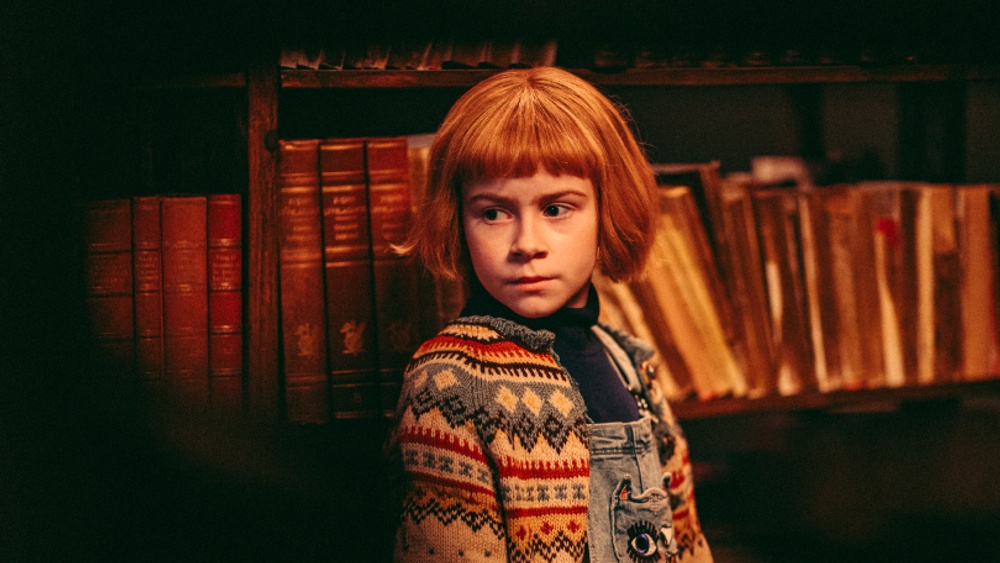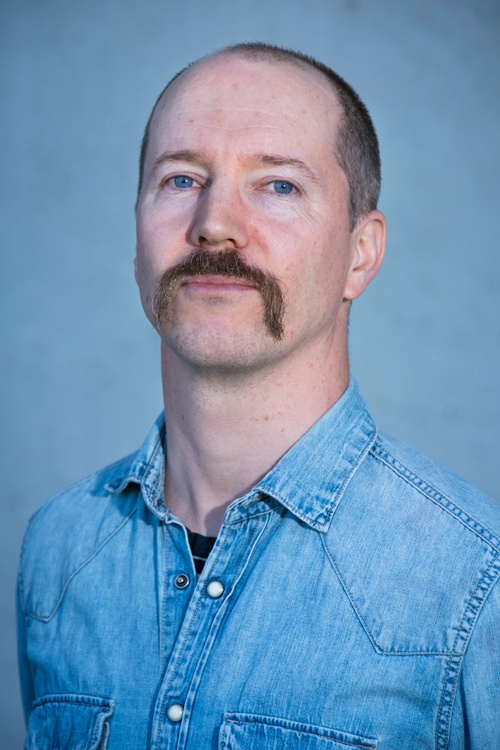Werewolves, swans and miners’ strikes
 The Nelly Rapp sequel has been granted funding. Photo: Per Larsson
The Nelly Rapp sequel has been granted funding. Photo: Per LarssonNelly Rapp returns in a new adventure with trolls and werewolves. Short films vary from surrealist stories about death and sickness to documentaries on friendships at a strip club, as well as a woman’s love of swans. These are just some of the latest projects to be granted production and market funding.
The first film about Nelly Rapp, Nelly Rapp Monster Agent, premiered at the world’s leading forum of film for young audiences: Generation in Berlin. It has achieved widespread success at festivals, and also following cinema release in several countries. And now, the sequel is here. In Nelly Rapp – Svartskogens hemlighet (English title TBA), directed by Johan Rosell with screenplay by Sofie Forsman and Tove Forsman, Nelly and her father go off to spend Christmas with Hannibal and Lena-Sleva, but Nelly plans to solve the secret of Black Forest. It’s a thrilling adventure involving trolls and werewolves, and it takes her far closer to the past than she could ever have imagined. The film has also been awarded market funding.
Norwegian–Swedish co-production Sulis, by two-time Amanda winner Nils Gaup, follows an event that happened over 100 years ago. It was Norway’s first strike and it happened at Sulitjelma, a Swedish-owned mine on land stolen from the Sámi people. On one side is Swedish mining company Sulitelma from Helsingborg, represented by the combative company representative Wennström. On the other are workers without rights from Sweden and Norway, represented by the legendary Stor-Rasmus.
Amongst the many short films is the notable dark film At the Window by Tomas Stark and Peter Larsson. In an animation/live action hybrid, the directors breathe life into poet Helen Adam’s scary, mysterious poem At the Window, about a young girl’s encounter with sickness, death and monsters.
In the thriller The Musical Spider (Den musikaliska spindeln), Henry Moore Selder tells the story of a man and his wife living in a loveless marriage, with a child who is just a head. On his 18th birthday the boy decides to steal his father’s body. Henry Moore Selder’s previous ‘genre film’ A Living Soul (En levande själ), about a brain in a laboratory, screened at Clermont-Ferrand and many other genre film festivals.
Lia Hietala and Hannah Reinikainen have previously co-directed Always Amber (Alltid Amber), nominated for a Teddy in Berlin. Hietala was also featured in Berlin with My Gay Sister (Min homosyster). Their new documentary Night Shift (Nattpass) follows Becky and Sara, two very different friends. Had they not both worked at the strip club they would probably never have met, but their close friendship is vital to get through the long night shifts. We follow the friends during a normal night at work: backstage, at the stripper pole, and home to bed the morning after.
Jane Magnusson has several international successes under her belt, with films such as Bergman – A Year in a Life (Bergman – ett år, ett liv) in Cannes, Vox lipoma (Fettknölen) at Sundance, and Trespassing Bergman (Bergmans video) in Venice. She now writes and directs the documentary Swan Lady (Svanmön), which follows the police as they enter a small apartment in Stockholm and find eleven swans crowded on a sticky floor. One swan has a broken wing, which the woman who lives there has strapped to the swan with packaging tape. She is convicted of animal cruelty, despite really loving swans. What happened?
Read more and view images from the latest projects to be awarded funding
About The Swedish Film Institute
The Swedish Film Institute is a collective voice for film in Sweden, and a meeting-place for experiences and insights that elevate film on all levels. We preserve and make available Sweden’s film heritage, work to educate children and young people in film and moving images, support the production, distribution and screening of valuable film, and represent Swedish film internationally. A broad diversity of narratives establishes discussions and insights that strengthen the individual and our democracy. Together, we enable more people to create, experience and be enriched by film.
Contacts

Martin Frostberg
- martin.frostberg@filminstitutet.se
- +46(0)8 665 12 12
- +46(0) 70 348 93 33